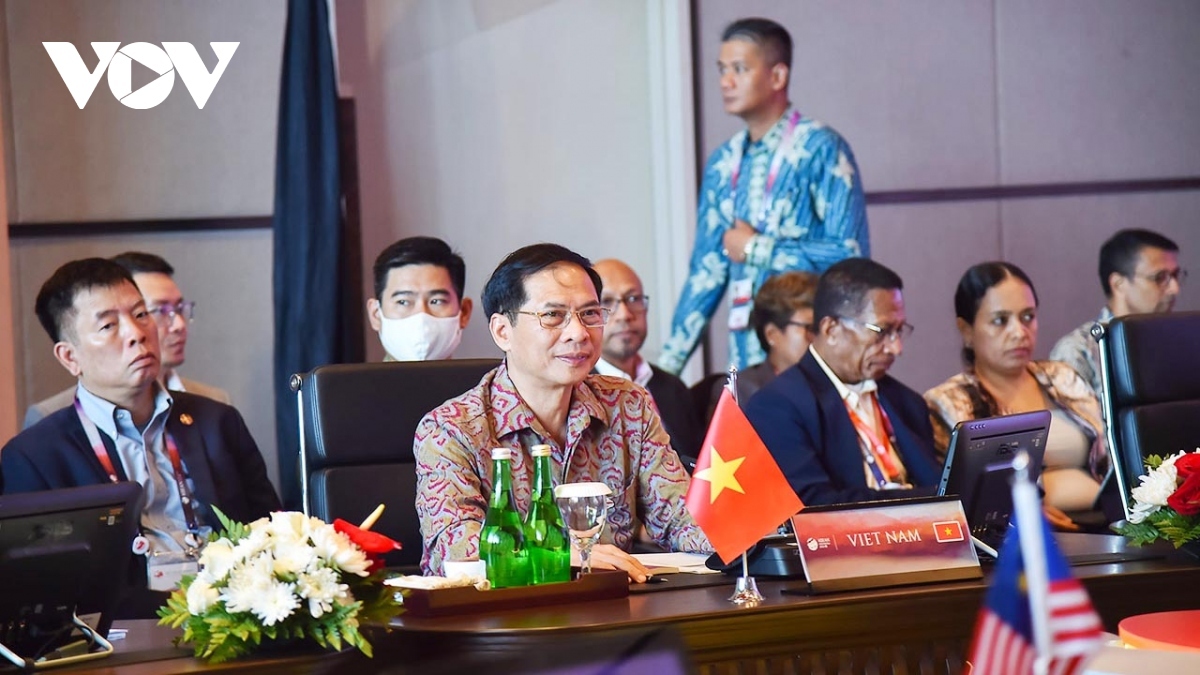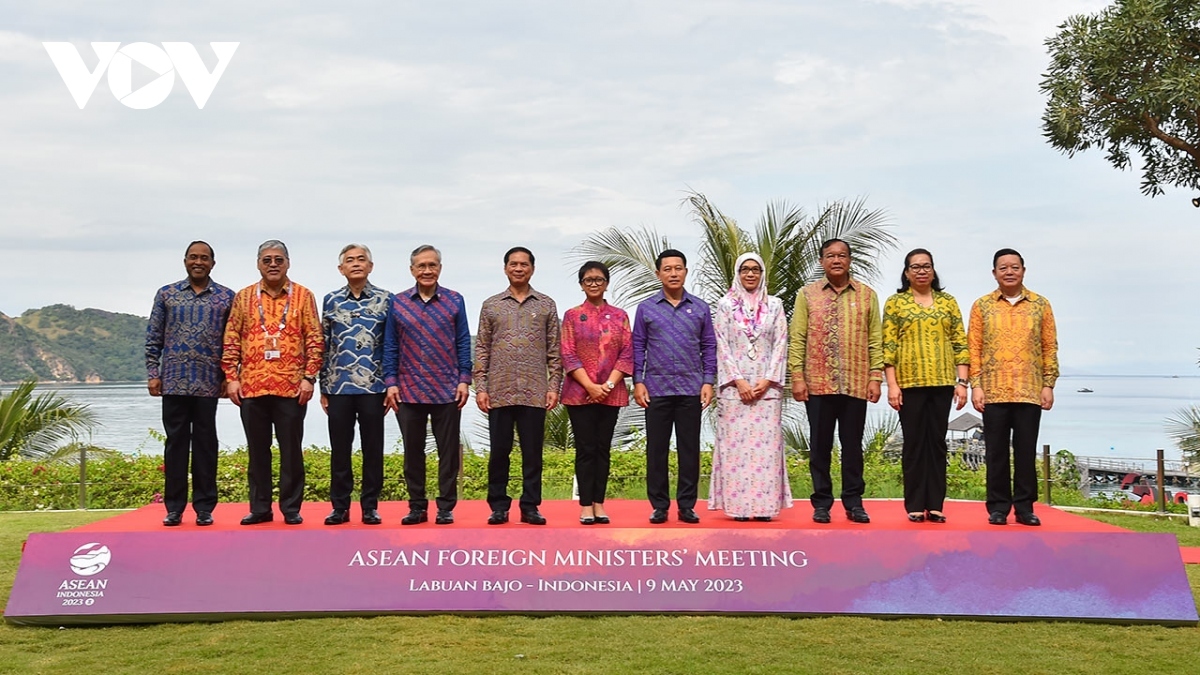Vietnam underscores promoting strength of ASEAN's solidarity and strategic autonomy
VOV.VN - ASEAN must seek to strongly promote the strength of solidarity, unity, and strategic autonomy, whilst effectively enhancing its central role with the support and respect of its partners and affirming its mission of maintaining peace, stability, and development in the region, Vietnamese Foreign Minister Bui Thanh Son has said.
Vietnamese Foreign Minister Bui Thanh Son on May 9 attended the ASEAN Foreign Ministers’ Meeting, the 33rd ASEAN Coordinating Council (ACC) Meeting, and the 26th ASEAN Political-Security Community (APSC) Council Meeting.
In the face of growing non-traditional security challenges, FM Son proposed stronger and more effective co-operation in the fields of marine collaboration, an increased response to environmental pollution, marine debris, transnational crime, and epidemics, among others. He also voiced support for Indonesia's initiative of publishing an ASEAN annual document on maritime co-operation.
Hailing Indonesia's efforts towards materialising a people-based ASEAN Community, Minister Son underlined the need to bolster sub-regional ties, in which ASEAN should play the central role to sub-regional development with the bloc’s common co-operation programmes. This should be done alongside enhancing infrastructure, institutional, and human connectivity to create stronger growth engines for the sub-regions, whilst effectively supporting the goal of narrowing the development gap.
Regarding the international and regional situation, the Vietnamese diplomat reaffirmed ASEAN's principled stance on the East Sea and highlighted the sense of responsibility of each country in building the East Sea into a region of peace, safety, and stability.
He therefore called on countries to maintain dialogue, strengthen trust, and peacefully resolve disputes based on international law, including the UN Convention on the Law of the Sea (UNCLOS) 1982.
Vietnam, ASEAN, and China have pledged to abide by the full and effective implementation of the Declaration on the Conduct of Parties in the East Sea (DOC), working towards the early adoption of an effective and legally-binding Code of Conduct (COC) in accordance with international law, including UNCLOS 1982.

He therefore supported and applauded efforts made by the ASEAN Chair’s Special Envoy on Myanmar in terms of promoting the implementation of the Five-Point Consensus to support Myanmar. He also stressed the need for constructive and substantive dialogue between relevant parties in the region as a way of building trust and ensuring that all solutions are Myanmar-led.
At the ASEAN Foreign Ministers’ Meeting, participants discussed the progress made in terms of building the ASEAN Community, as well as new developments in the region. They agreed to promote the bloc’s values, principles, and standards of conduct, thereby ensuring its independence, self-reliance, proactive, and flexible adaptation to changes, and centrality in the regional architecture.
Meanwhile, the 26th APSC Council Meeting focused on progress recorded in the implementation of the APSC Blueprint. Accordingly, ASEAN's principles and standards of conduct have been respected; its substantive co-operation promoted across defence, energy-food-maritime security, and response to emerging challenges; and the bloc’s principled stance on the East Sea has been further strengthened.
At the 33rd ACC Meeting, participating officials assessed the overall progress made in the implementation of the ASEAN Community Vision 2025 and the drafting of the post-2025 vision. They also discussed and completed the roadmap for Timor Leste to become an ASEAN member state.

